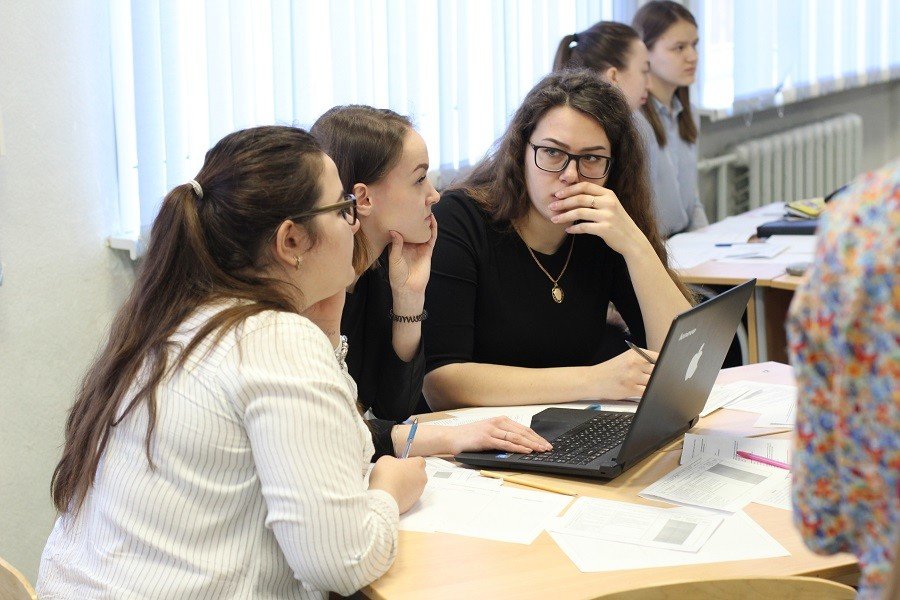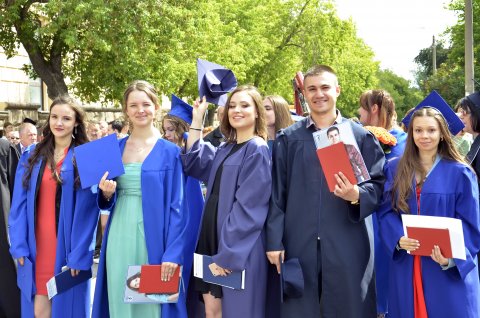In today’s multicultural world, it is becoming the norm for everyone to speak English. English has become the lingua franca, an instrument for international education, and one of the means of obtaining knowledge. Director of the South Ural State University Institute of Linguistics and International Communications Elena Yaroslavova tells us about the know-how of English language training at one of the major universities in Russia.
Yelena Yaroslavova: Two years ago, we had a very difficult task before us: change both the content and the very principle of teaching English with the goal of improving the language level of students to above B1+, for them to successfully participate in international research and academic activities. Ambitious plans were also created within the SUSU Road Map as part of the university’s transformation to attempt to achieve leadings position in education and science. We developed and implemented a multi-level model of continuous international language training for students of non-linguistic specialties with a focus on international standards, which is being gradually implemented at SUSU.
– How does the new model differ from the old method, and what benefits do SUSU students get?
– We direct students towards new goals: achieve a level of English which meets international standards and is confirmed by international certificates. Our major goal is the IELTS international exam. Students with a high level of English in the final exam in the fourth semester earn the right to train for and take the IELTS exam free of charge, and obtain an international certificate. This way, students have a chance to learn English over 7 semesters and improve their level according to international standards.
– Why do SUSU students need to take the IELTS international exam?
– This certificate gives SUSU graduates a competitive advantage because it offers them additional possibilities in terms of their academic and professional mobility: studying under a Master’s program abroad, earning prestigious employment. It is no secret that employers see speaking English as a competitive advantage for employees. And for graduates of non-linguistic specialties, the IELTS certificate is a weighty argument in their favour.
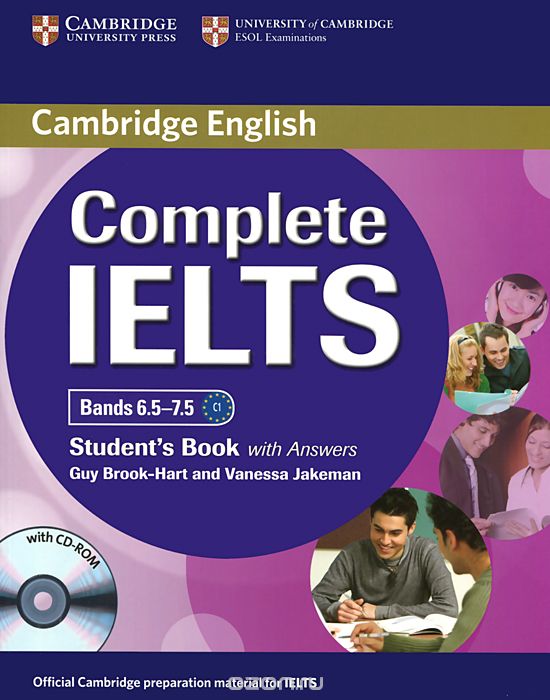
– How is the academic process organized?
– After entrance testing, students are separated into groups according to their level of language proficiency, which is determined by the Common European Framework of Reference (CEFR), which creates the most comfortable conditions for successful further development of language skills. At the end of each semester, students are tested using international materials to determine the dynamics of their level of English.
Students work with the newest textbooks by publishers and leaders in the field of foreign language training: Cambridge University Press, and Oxford University Press, which they can check out from the library. For greater efficiency, we use “blended learning” in the academic process, when a student has both 5 hours of classroom lessons and spends the same amount of time in a virtual environment using digital training and various instruments of online communications.
Given that students spend a significant amount of their time on individual training online, classes are held through live communication.
– What can you say about the teaching staff?
– Our teaching staff are professionals in their fields, who are ready to implement everything new and promising, whose competencies are verified by international certificates and academic titles, and they are also creative specialists who involve students in their projects, festivals, and contests, where students can fully explore their potential.
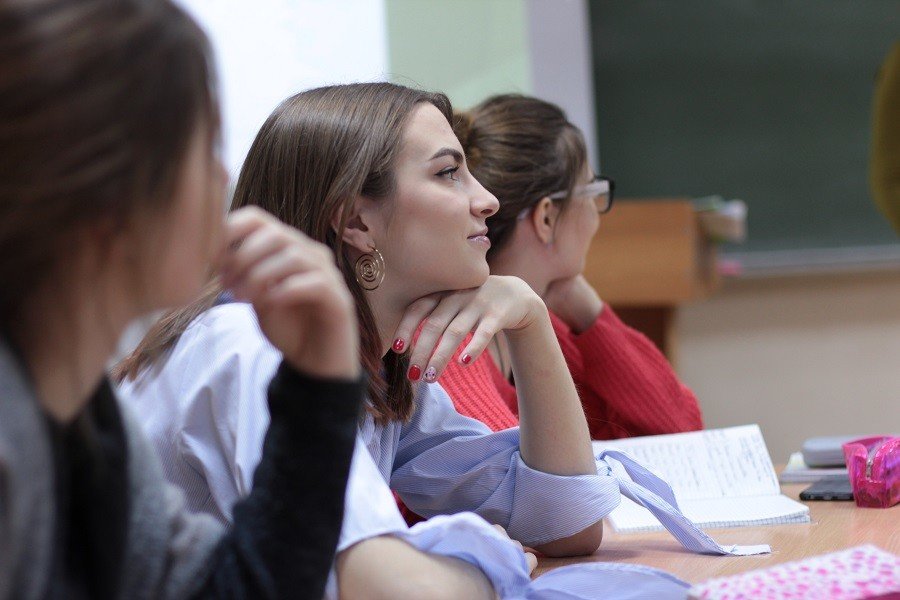
Students on Learning English at SUSU
Kseniya Melnikova, student of the School of Economics and Management
“When I enrolled at SUSU, I didn’t know anything about intensive language training. But now I can definitely say that the English language course significantly strengthened my knowledge, after all when I came to my English group, I thought I knew absolutely nothing. Now among all of the subjects in our course, I like English most of all, and I’m happy that I have the chance to study it thoroughly!”
Aleksandr Nenakhov, student of the School of Economics and Management
“What I think of our course? It’s an interesting, sincere course, and the people here are nice. I really like doing projects and assignments online (I wish there were more of these courses). Each lesson is like a holiday. Thanks to this course, I can both read and write English, and I understand various songs, and I can speak English fluently. The only thing I regret is that we weren’t taught English in school in the same manner.”
Kseniya Sokol, student of the School of Economics and Management
“In our lessons, besides working with textbooks and workbooks, we are given very creative assignments, the goal of which is to teach us to express our thoughts in official and non-official ways. The projects that we completed throughout the semester don’t just teach us competent presentation of materials, but also how to work with multimedia content. The result of this course is sufficient preparation for taking the international exam.”
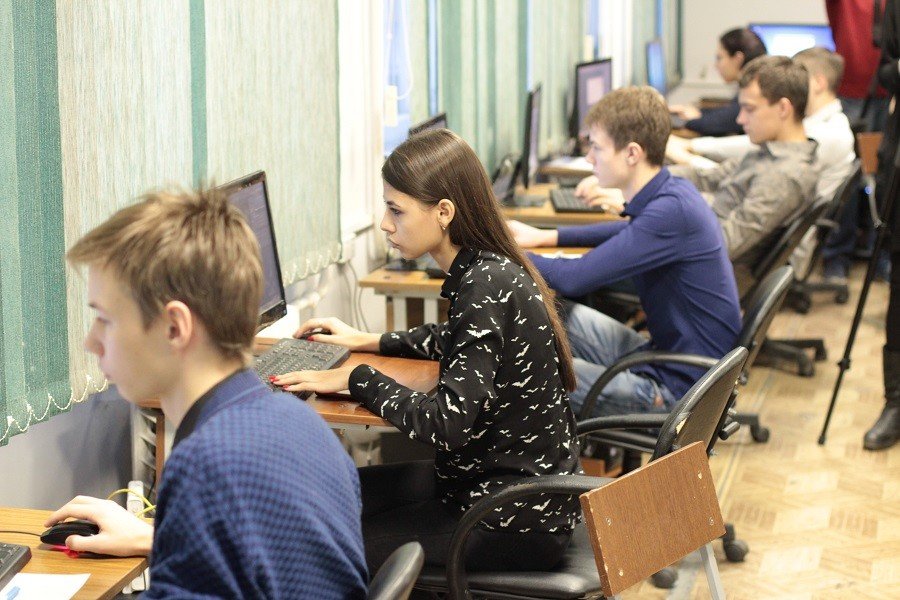
Andrey Moiseenko, student of the Institute of Architecture and Construction, group of elite training
“I believe that the main benefit of our training is an emphasis on listening and speaking, living language, hearing “real” speech rather than retelling of texts, etc. Even if we had to study something, then as far as I can remember, we only read original texts, and this was a good opportunity to also practice writing. I was also happy about the broad range of topics that we covered and about completing project assignments.”
Viktoriya Shershikova, student of the Institute of Law, elite training group
“Studying in the elite training group gave us the opportunity to significantly improve our language level. The original approach to teaching didn’t just keep us awake in our lessons, it also gave us energy for the rest of the day. The lessons were held in a creative and comfortable environment. Sometimes I had the thought that English is the main reason I value my education at SUSU.”
Artem Starkov, student of the School of Electrical Engineering and Computer Science
“When I enrolled in the university I had quite a low level of English. After completing the main course, my classmates and I enrolled in the Faculty of Advanced English Training, and I came to the conclusion that it’s not so difficult to learn English. Especially under the careful guidance of our wonderful teachers, who make the lessons as interesting and informative as possible. With great enthusiasm, I hope to continue my training next semester and take the IELTS!”
